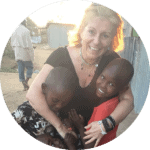Visit to ongoing projects in Kenya
In October 2021, we were able to travel to Kenya again for the first time in two years to visit the ongoing projects there.
As Swiss is currently not operating the direct flight to Nairobi, we flew to Nairobi via Frankfurt. After a quiet night in the airport hotel, we, i.e. Marcia and I, were picked up by Agnes Gitonga and her brother James the following morning.
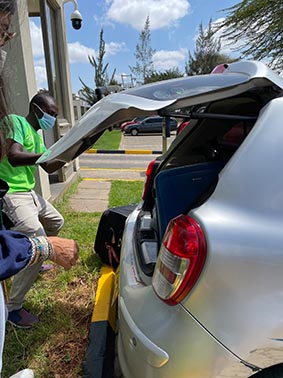
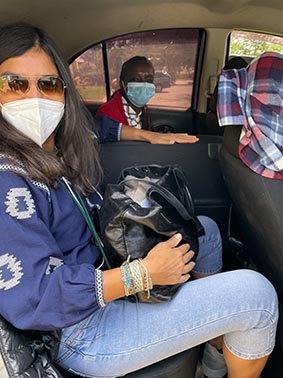
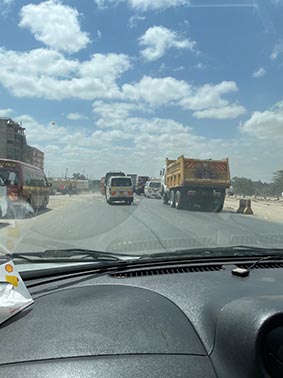
Rehoboth Learning Center for Kings & Queens in Noonkopir
Then we went to Kitengela, where we went to the local shopping center to buy things for the children at the Rehoboth Center and for the Mpirrishi school. Our shopping list included apples, cookies, hula hoops, skipping ropes, sugar, salt, oil for cooking, sanitary towels and soap.
We then went straight to the Rehoboth Learning Center for Kings&Queens in Noonkopir, a slum area of Kitengela. This school is considered a private school, but here it is exactly the opposite of European private schools, namely a school for poor children whose parents cannot afford to send them to public school. We were warmly welcomed there with various performances of the individual classes.
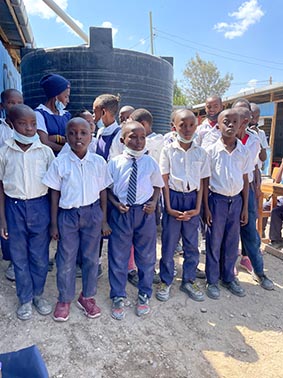
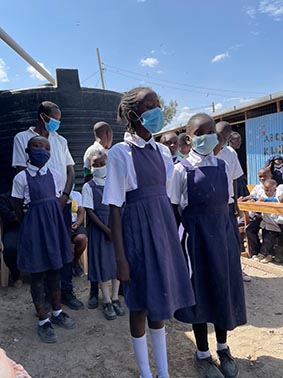
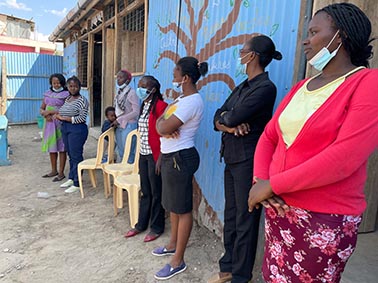
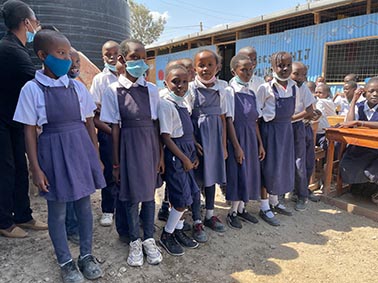
The Rehoboth Learning Center clearly shows how much good external help can do. There are rules of conduct in the “staff room” that all pupils have internalized. The most important thing, however, is that in this school – and this is the exception rather than the rule in this area – there is no caning of pupils.
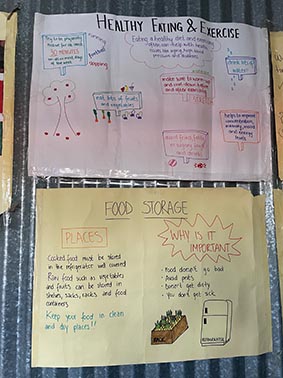
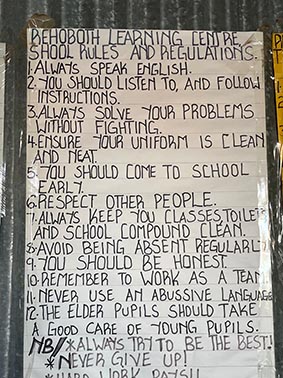
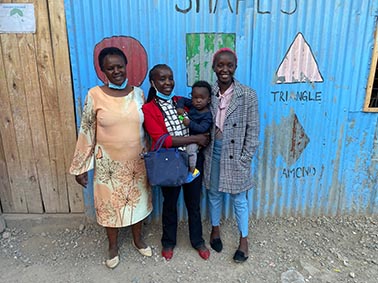
The school, which currently has 160 pupils, has very limited space and resources at its disposal. But you can tell that there is a positive and friendly atmosphere overall. As the Kenyan government has changed the curriculum in the meantime, we have once again donated textbooks for the school.
Mpirrishi Primary School
The next morning we made our way to Oltepesi to Mpirrishi Primary School, which is actually “only” 104 km from Kitengela. One way takes three hours, as the last 30 km in particular can no longer really be described as a road and we sometimes wondered whether we would even make it there. And it was all dry to boot! The people in and around Mpirrishi only have the option of hiring a so-called picky boy, i.e. a motorcyclist, to get them to the nearest hospital, for example. The price for the round trip is 12,000 KES, which is the equivalent of around 120 dollars. For comparison: a cook earns around $60 a month.
We were to learn shortly afterwards just how problematic this actually is in reality.
Agnes and her daughter Keren have already been to Mpirrishi several times and have campaigned strongly against female genital mutilation, which is still practised although forbidden by law. However, this was only possible because Manuel, the head teacher, was open to the idea. The aim was therefore to find out the mood among parents and pupils and, above all, to get to know the girls we support who were mutilated at the end of 2020. And here we witnessed an incredible performance. In front of the assembled parents, village elders, teachers and students, the group of girls prepared for their performance. My breath caught in my throat when I saw a girl putting on plastic gloves. I went closer and started filming, and sure enough, these incredibly brave girls were performing what had traumatized them a few months ago, their mutilation. It was one of the most intense experiences I – and not just me – but Marcia, Agnes and their daughter have ever had. We all had tears in our eyes.
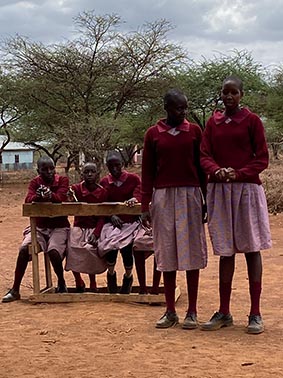
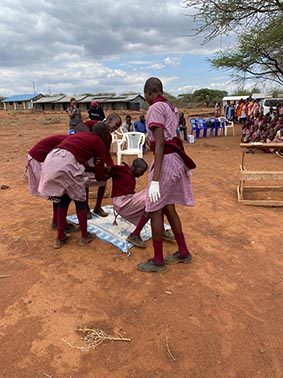
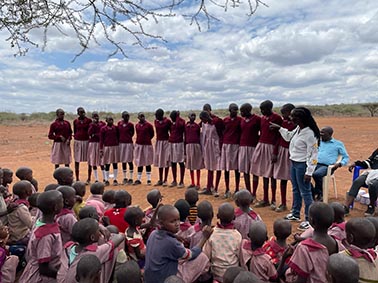
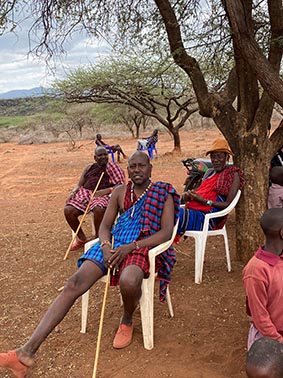
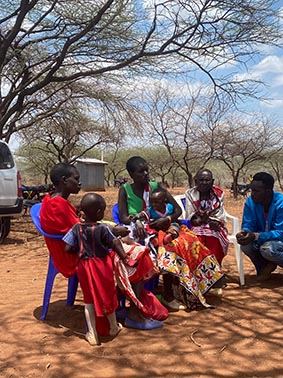
After the “official” part of the meeting, we had planned a meeting with the girls. On the way there, Agnes showed us the “cutter”, an old woman who carries out genital mutilation for a living. Even she was incredibly moved by the girls’ performance and spontaneously promised not to use the razor blade again. However, in order for us to actually stop this woman from carrying out this practice in the future, we have to make sure that she can earn her living through an alternative job.
All of a sudden, Marcia came to me very excitedly and showed me a little girl who had injured her wrist about two weeks ago while playing. The girl’s forearm had been tightly bandaged with a cloth and her hand was very swollen. After some discussion, we persuaded the girl’s mother to remove the bandage and accept our offer to have our driver take her and her daughter to the nearest hospital. At that moment, I realized the terrible consequences of female genital mutilation: it often leads to illiteracy. If the girl had not received medical care, she would most likely have lost her hand, which in turn would have led to her being considered possessed by evil spirits.
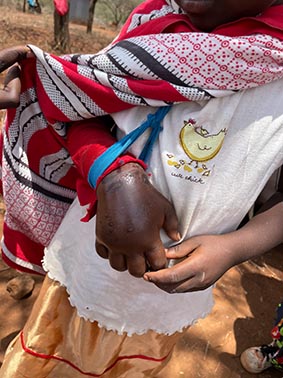


On the way to the meeting with the girls, we met two 23-year-old women who each already have 4 children and about whom Agnes had found out that they wanted to have themselves mutilated soon, whereupon we immediately invited them to our meeting with the girls.
The girls’ statements were all the same: if they had known what was to come, they would never have consented and they are all prepared to do anything to spare their sisters and other girls and young women this terrible procedure. Some of these girls are so traumatized that they can’t even talk about it.
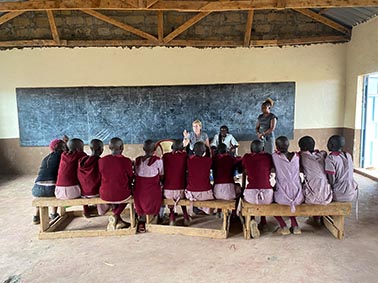
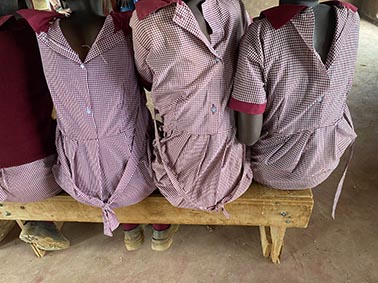
The two women listened with interest, but did not really take the girls’ descriptions at face value. When asked why they wanted to undergo this procedure, they both answered in unison that they wanted to become fully-fledged women. For one of them, the pressure came from her husband and mother-in-law and for the other, the midwife had threatened not to assist her with another birth if she didn’t allow herself to be mutilated. Even our argument that they had already clearly demonstrated their “womanhood” by giving birth to four children each bounced off them. We hope that the two young women will not bow to the pressure from their immediate environment.
We left Mpirrishi with a smile and a tear in our eye: the positive mood among the teachers and village elders gives us hope that this cruel procedure can be overcome, but it is still a long and arduous journey, especially due to the lack of any local infrastructure.
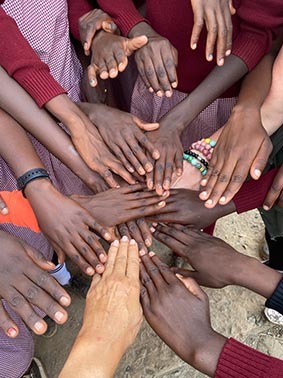
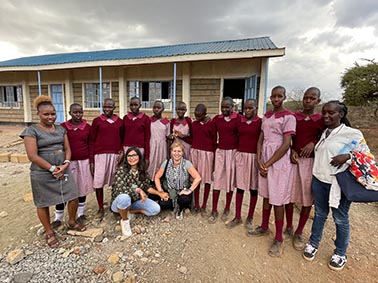
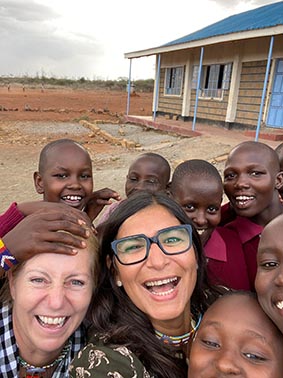
After a four-hour drive, we arrived back in Kitengela in the dark.
Nasaru Masai Girls Learning Center
The next morning we traveled to Iloshon to check on our project “Nasaru Learning Centre for Masai Girls”. We went to the Kitengela Mall again beforehand to buy bare necessities such as soap, washing powder, sugar, salt, oil, sanitary towels and toilet paper. As we also had to spend the night there, we also bought mattresses to put on the roof of the car. Packed to the rafters, we then made our way to Iloshon, where we noticed that the condition of the dust road, at least as far as the Kudu Hills project, had improved noticeably – or had our standards dropped?
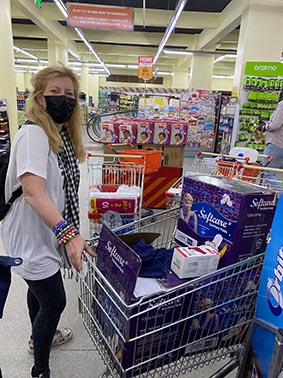
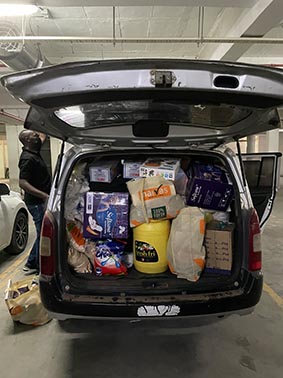

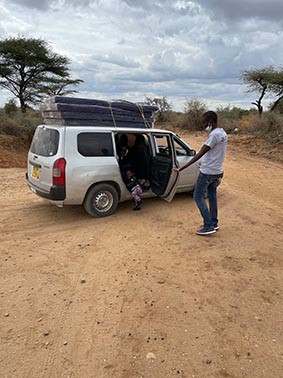
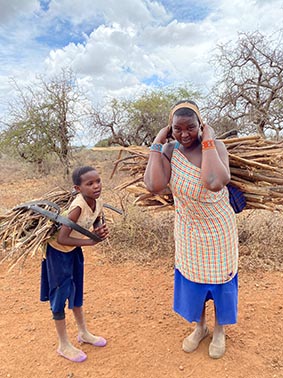
However, shortly before we reached our destination, our car broke down and we were towed away by the head teacher Paul together with Geoffrey, who is building the fence around Nasaru.
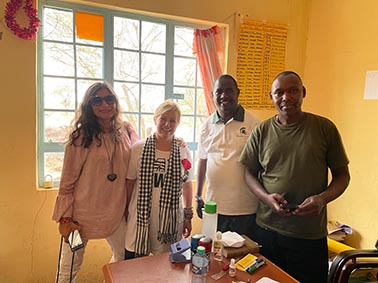
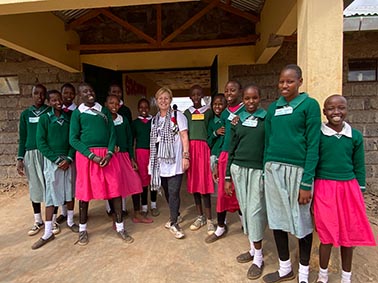
The ongoing drought has also taken its toll in Iloshon and many parents can no longer afford to send their girls to boarding school. Prices for livestock have fallen and parents lack money for food and water. This was also the reason why we asked Geoffrey, who still travels a lot in the area as a bricklayer, a year ago to identify 25 girls from other communities who are even poorer than everyone else and whom we would enable to attend the Nasaru Learning Center and thus also to attend school. We discussed the reasons for this with all the staff, from the teachers and the cook to the housemother and the security guard. One of the reasons is the cost structure, which we discussed in great detail with the principal. In the end, we were able to agree on a cost reduction for the parents. We also made the teachers very aware that they are also responsible for recruiting boarding school pupils and pointing out to parents the necessity of attending the school.
In the evening, we checked whether all of the girls we were supporting were actually there and found all of them, with the exception of one student who was ill. As we got to know each other, we realized that, with a few exceptions, the girls did not know their birthday and in many cases did not even know their year of birth. Everyone had a lot of fun in the skipping rope competition that followed.
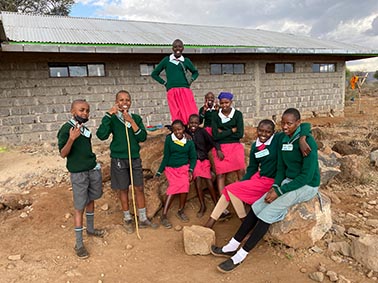
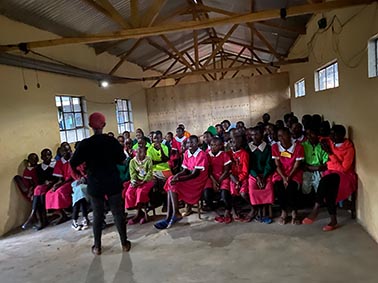
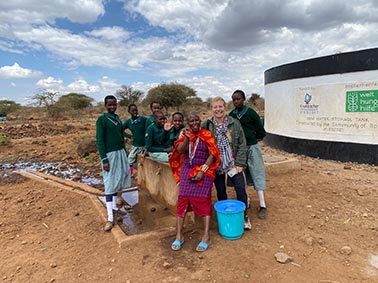
After holding a meeting with the staff in our dormitory until 10 p.m., we were very surprised and, above all, sleep-deprived when the girls’ sleep ended at 4:30 a.m. with a lot of noise.
The next day, we visited every single class and distributed pencils, pens and exercise books to all 450 pupils.
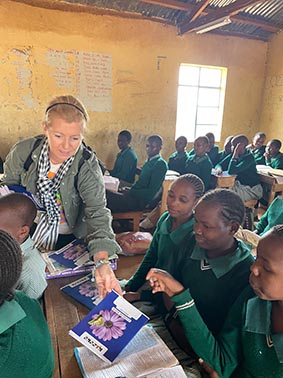
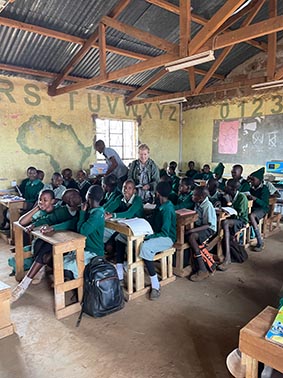
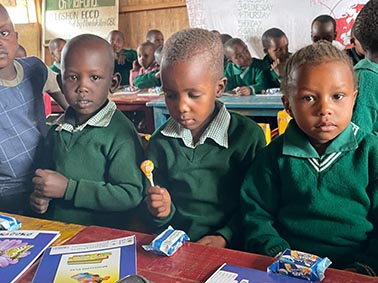
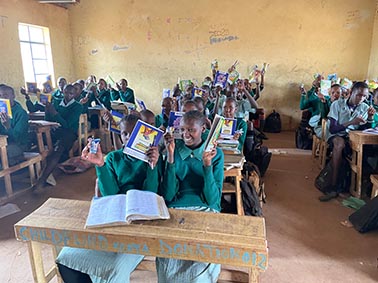
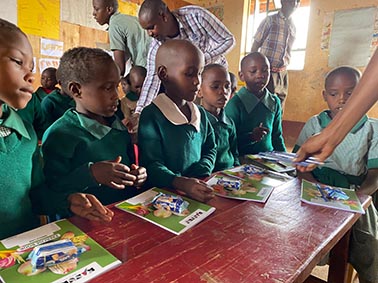
Unfortunately, the stay was very short and it would have been nice to get to know the girls a little better and interact with them directly. Agnes has also already identified potential victims of mutilation among the residents of Nasaru, as the two lower incisors of the designated girls are filed down in advance.
On the way back to Kitengela, Agnes showed us a piece of land that she rented last year as part of the feeding program run by WeCare-Association and which now supplies the Rehoboth School with vegetables.
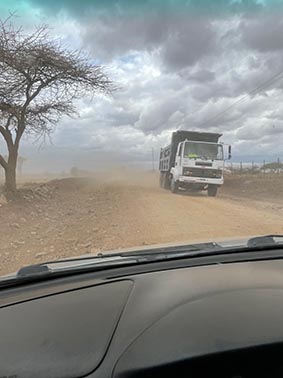
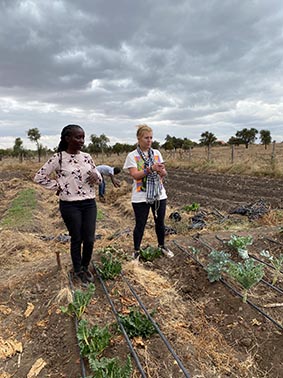
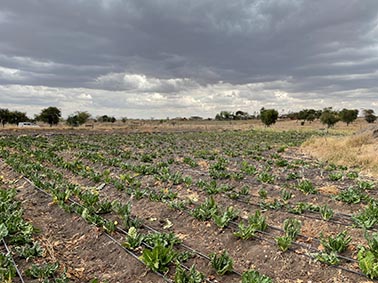
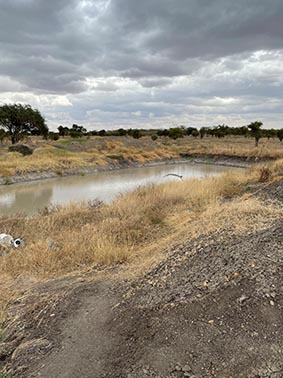
The conclusion of our visit this year: The pandemic has not really improved the situation for the poorest of the poor and there is a lot to do. So we are tackling it: We are looking for sponsors for our girls so that we can ensure in the long term that these girls graduate from school and have the opportunity to get an education beyond elementary school. Sponsoring a girl gives you the opportunity to build a real relationship with her and follow her progress. There is a progress report three times a year, a Christmas letter from the girl, the annual report of the WeCare-Association and a small gift for our supporters. More information will be available soon on our website wecare-association.com and on the social media Instagram(https://www.instagram.com/wecareassociation/) and Facebook(https://www.facebook.com/WeCareAssociation).
It was a very exhausting and intense few days that left us incredibly touched and motivated. We met wonderful people who deserve a better future. “Education is life”. Only now do I understand the dimension of this much-used slogan.
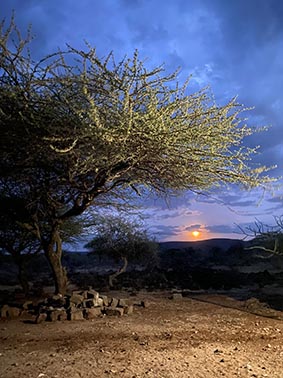
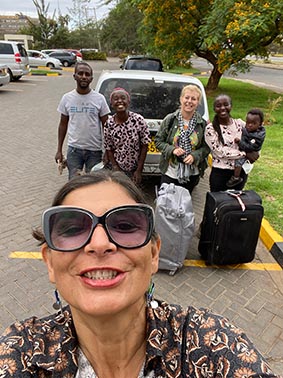
Thank you in advance for your support at https://www.wecare-association.com/aktiv-werden/.
